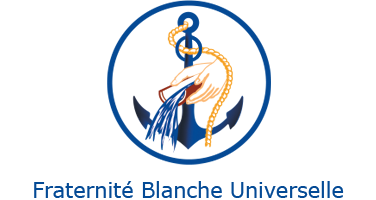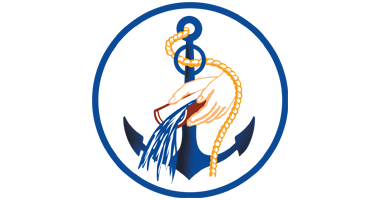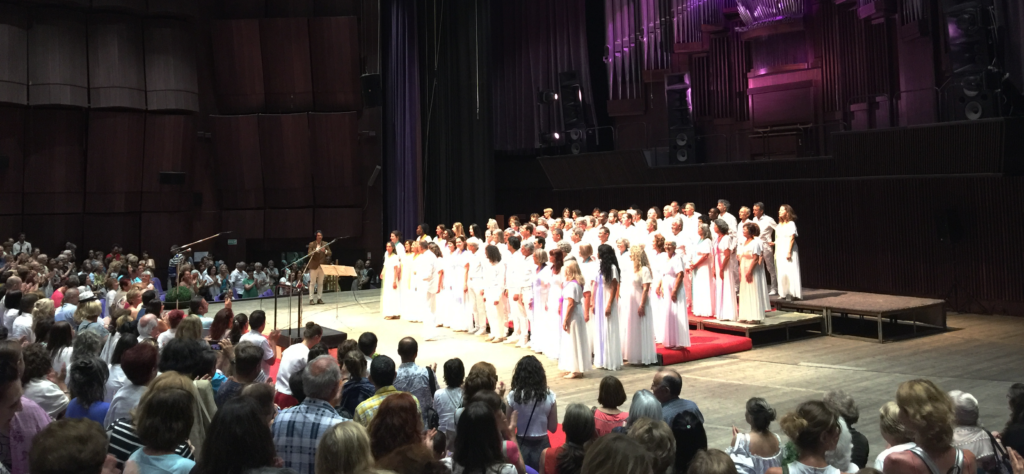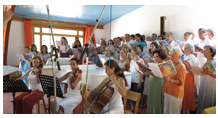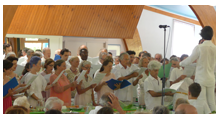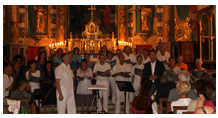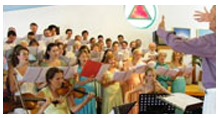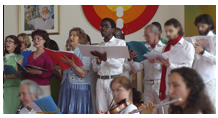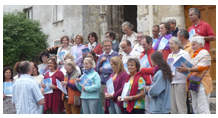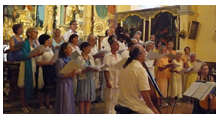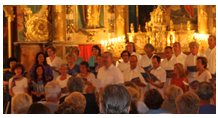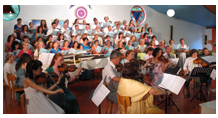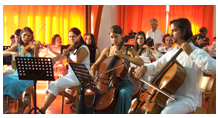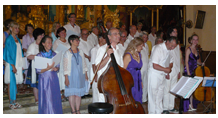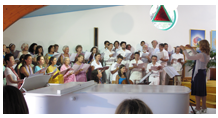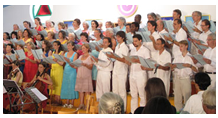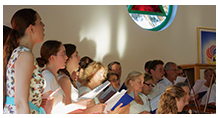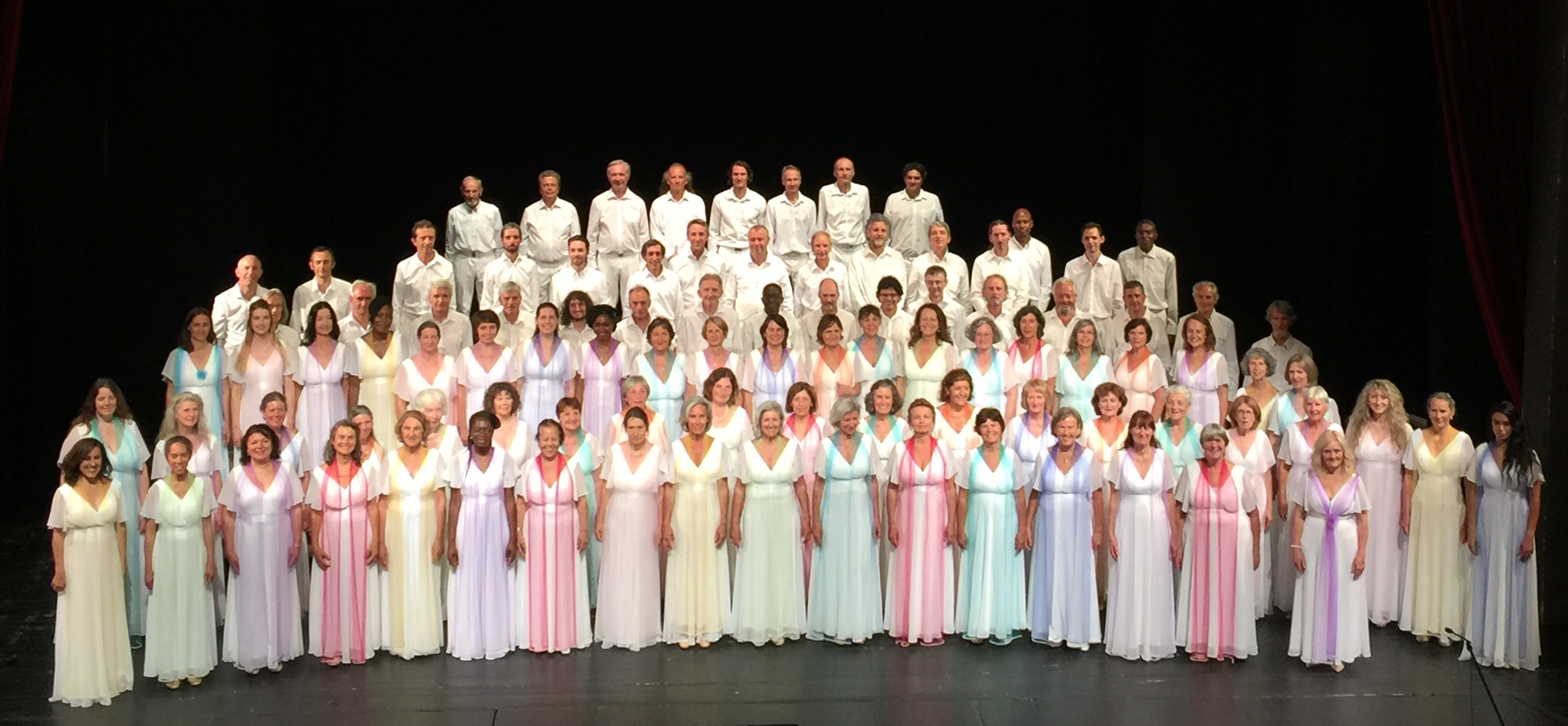
Dans le chant choral, nos voix unissent leurs différences en un tout harmonieux.
In choir singing, our voices unite their differences in a harmonious whole.
Clic sur ce lien pour voir le concert qui a eu lieu le 12 juillet à PLOVDIV présent sur la chaîne Youtube fbuOMA
Chorale Vidélina
La chorale Vidélina est la chorale internationale de la Fraternité Blanche Universelle.
Son répertoire est essentiellement constitué des chants mystiques composés par le Maître Peter Deunov (1864-1944) qui les présentait comme des exercices spirituels.
Selon le Maître Omraam Mikhaël Aïvanhov, ces chants éveillent dans l’âme humaine le souvenir de sa patrie céleste, ils contribuent à renforcer l’équilibre psychique, élèvent, harmonisent et peuvent même guérir.
« Être en harmonie avec tout l’univers ! C’est pour obtenir cela que nous chantons. […] Nous établissons ainsi l’équilibre dans nos cellules. […] C’est de cette façon qu’on s’embellira. Grâce à la musique que le Maître Peter Deunov nous a donnée comme un trésor, un gage d’amour, nous nous transformerons. »
Omraam Mikhaël Aïvanhov – 24.03.1964 (« Le rôle cosmique de la musique »)
Notre philosophie encourage le chant et invite à participer à la chorale car la musique et le chant sont une nourriture qui non seulement permet de faire un travail spirituel sur soi-même mais aussi favorise l’unité et l’harmonie entre tous.
« Tout est musique dans la nature, mais nous ne pouvons pas l’entendre. Les fleurs qui s’ouvrent, les arbres, les coquillages, la lumière, produisent une musique tellement subtile que nous ne l’entendons pas. Tout est musique. “Au commencement était le Verbe,” c’est-à-dire la musique. La musique a créé le monde et elle a laissé ses traces partout. Un jour, quand nous serons assez développés, nous constaterons que des musiques extraordinaires viennent des étoiles et du soleil. La création ne se soutient que par la musique. Quand la musique cessera, tout s’effondrera. »
Omraam Mikhaël Aïvanhov – 15.09.1960
La chorale existe depuis la création de l’association en 1947 en France. En 72 ans d’histoire, elle a essentiellement chanté dans le cadre des associations Fraternité Blanche Universelle présentes dans plus de 20 pays. Elle donne aussi occasionnellement des concerts publics comme en Bulgarie en 1995 et en 2003, à Sofia, Plovdiv et Varna. C’est en 2018 qu’elle s’est baptisée « Vidélina ».
La chorale Vidélina est composée de membres de la Fraternité Blanche Universelle issus de plusieurs pays. Elle souhaite porter un message de fraternité dans le monde.
Videlina choir
The Vidélina choir is the international choir of the Universal White Brotherhood.
Its repertoire consists mainly of mystical songs composed by the Master Peter Deunov (1864-1944) who presented them as spiritual exercises.
According to the Master Omram Mikhael Aivanhov, these songs awaken in the human soul the memory of its heavenly homeland, they help strengthen our psychic balance, they uplift us, they harmonise and can even heal us.
“To be in harmony with the whole universe! We sing together to reach this stage. […] And by doing this, we establish a balance within our cells. […] This is how we will attain beauty within. We will transform ourselves thanks to the music the Master Peter Deunov gave us as a treasure, a pledge of love.”
Omraam Mikhael Aivanhov – 24 March 1964 (“The cosmic role of music”)
Our philosophy encourages singing and invites us to participate in the choir because music and singing are like food that not only allows us to do spiritual work on ourselves but also promotes unity and harmony among all.
“In nature, everything is music, but we cannot hear it. Flowers in bloom, the trees, the shells, the light, produce music so subtle that we do not hear it. Everything is music. “In the beginning was the Word,” that is, music. Music has created the world and left its mark everywhere. One day when we are more advanced we will find that the most extraordinary music comes from the stars and the sun. Creation is supported by music only. When music stops, everything will end. “
Omraam Mikhael Aivanhov – 15 September 1960
The Brotherhood Choir has existed since the creation of the French association in 1947. During its 72 years of history, it has mainly be active within the Universal White Brotherhood associations in more than 20 countries. From time to time, it gives public concerts as it did in Bulgaria in 1995 and in 2003 in Sofia, Plovdiv and Varna. In 2018 the choir was given the name “Vidélina”.
The Vidélina Choir comprises members of the Universal White Brotherhood from several countries. It aims to bring a message of fraternity to the world.
Des chants composés par un Initié
L’âme humaine a besoin de s’exprimer par le chant, mais un chant qui purifie, qui élève.
Bien sûr, il existe dans le patrimoine musical de l’humanité des chants sublimes qui sont une véritable nourriture pour l’âme : des messes, des requiem, des oratorios… Mais si, pour chanter, vous devez attendre d’être capables d’interpréter des œuvres pareilles, la plupart d’entre vous n’ouvriront jamais la bouche.
Alors chantez plutôt les chants du Maître Peter Deunov, car non seulement ils sont une nourriture pour le cœur et pour l’âme, mais ils éclairent notre pensée et stimulent notre volonté. Vous avez là tout un arsenal magique, servez-vous en.
Quand vous sentez que vous ne savez plus très bien où vous en êtes, chantez « Misli, pravo misli : Pense juste », et vous verrez déjà mieux le chemin. Quand vous croyez que plus personne ne vous aime, chantez « Bog é lioubov : Dieu est amour », et alors que voulez-vous de plus, puisque Dieu ne vous abandonnera jamais ! Et si vous vous sentez épuisé, malade, chantez « Sila zdravé é bogatstvo : Une forte santé est une richesse », et vous retrouverez de l’énergie. Quand il vous arrive d’être troublé, chantez « Pri vsitchkité ouslovia … : Dans toutes les conditions de la vie, ne perds pas ta paix » … [etc.] … Et quand vous êtes heureux, remerciez en chantant « Blagoslaviaï, douché moïa, Gospoda » : Bénis, ô mon âme, le Seigneur.
Izvor Hors série, Hommage au Maître Peter Deunov, p. 32
Quand les voix s'unissent
Chanter ensemble en chorale à quatre voix est un acte d’une grande signification. C’est un symbole de ce que nous avons à faire pour nous accorder, nous harmoniser entre nous. Cette fusion des voix au-dessus de nos têtes est en même temps une fusion de nos âmes et de nos esprits.
Votre voix est imprégnée de votre magnétisme, de votre vitalité, de votre parfum. Vous êtes lié à votre voix comme si elle était un petit cerf-volant que vous tenez au bout d’un long fil. Votre voix vous quitte et elle se promène au-dessus de vous, elle rencontre les autres voix avec lesquelles elle se fusionne, et elle vous revient ensuite amplifiée, enrichie de tout ce qu’elle a reçu dans cette fusion.
Brochure n° 306, III
Le symbolisme des quatre voix
Cette pratique de chanter à quatre voix, c’est déjà un reflet, une expression dans le plan physique d’un exercice à faire chaque jour et plusieurs fois par jour, pour accorder ensemble notre esprit, notre âme, notre intellect, notre cœur.
On peut dire que les quatre voix, basse, ténor, alto, soprano, correspondent aux quatre cordes du violon, qui est aussi une image de l’être humain. La corde sol représente le cœur, le ré l’intellect, le la l’âme et le mi l’esprit. Le violon lui-même représente le corps physique ; et l’archet, c’est la volonté qui agit sur les quatre principes du cœur, de l’intellect, de l’âme et de l’esprit.
La fusion harmonieuse des quatre voix – ou le jeu sur les quatre cordes – nous rappelle que les quatre principes du cœur, de l’intellect, de l’âme et de l’esprit doivent vibrer en harmonie dans l’être humain. Pourquoi croyez-vous que le violoniste soit toujours obligé d’accorder son violon ? Pour nous dire que chacun de nous ne peut faire aucun véritable travail intérieur si son être entier n’est pas accordé.
Izvor n° 223, Création artistique et création spirituelle, chap. VI
Songs composed by an Initiate
The human soul needs to express itself through singing but with songs that purify, elevate.
Of course, there are sublime songs in the human musical heritage that is true nourishment for the soul: some masses, requiem, oratorios, etc. Yet, if you wait to sing until you are able to interpret such works, most of you will never open their mouth.
Therefore, sing instead the songs of Master Peter Deunov as not only they nourish the heart and soul but they enlighten the mind and stimulate the willpower. You have there a whole magical arsenal (collection, assortment, array), use it.
When you feel that you do not quite know where you are at, sing “Misli, pravo misli: Think right” and you will see the way ahead better. When you feel that no one loves you anymore, sing “Bog é lioubov: God is love” and then what more do you want since God will never abandon you! And if you feel exhausted, ill, sing “Sila zdravé é bogatsvo: A strong health is wealth” and you will find new energy. When you feel troubled, sing “Privsitchkité ouslovia”: In all conditions of life, do not lose your peace” etc. And when you are happy, give thanks by singing “Blagoslaviaï, douché moïa, Gospoda: Oh my soul, bless the Lord”
Life with the Master Peter Deunov
When voices join together
Singing together in four parts harmony is an act of great meaning. It is a symbol of what we need to do to be in agreement, in harmony amongst ourselves. This fusion of voices above our heads is at the same time a fusion of our souls and spirits.
Your voice is impregnated with your magnetism, your vitality, your perfume. You are connected to your voice like if it was a little kite that you hold with a long string. Your voice leaves you and travels above you, it meets the other voices fusing with them and then comes back to you amplified, enriched with everything it has gained in this fusion.
